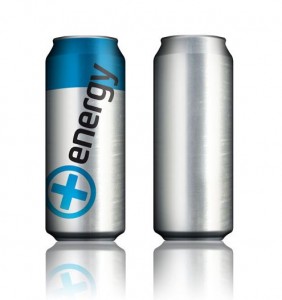As the Vermont legislature debates the possibility of a tax on sweetened beverages, a recent study from the journal Academic Pediatrics adds a new wrinkle to the discussion. This paper looks not only at traditional sugary beverages like soda but also energy drinks, which are becoming increasingly popular among youth and contain high amounts of both sugar and caffeine. The goal was to gather some basic data on how much different types of these drinks are consumed and whether or not they might be associated with behavioral problems such as inattention or hyperactivity.
The subjects for this study were over 1600 middle school students across 12 schools in the same urban area. The average age was 12 years old and the sample was predominantly Hispanic or black. The students completed a survey about sweetened beverage use over just the past 24 hours. They also filled out the 5-item inattention/hyperactivity subscale of the Strength and Difficulties  Questionnaire with scores above 5 categorized has reflecting high levels of symptoms. This was a cross-sectional study (ie assessing variables only at one time point) so in an attempt to tease out the association specifically between ADHD behaviors and sweetened beverages, the analyses controlled for a number of demographic variables, as well as the amount of sugar consumed from other foods.
Questionnaire with scores above 5 categorized has reflecting high levels of symptoms. This was a cross-sectional study (ie assessing variables only at one time point) so in an attempt to tease out the association specifically between ADHD behaviors and sweetened beverages, the analyses controlled for a number of demographic variables, as well as the amount of sugar consumed from other foods.
Results showed that consumption of sugary beverages varied by sex and race with boys drinking more than girls and Hispanic and black students consuming more than white students. On average, children drank 2.24 sweetened beverages per day. Students with higher levels of hyperactivity/inattention drank more sweetened beverages the day before than those in the normal range (2.7 versus 2.2). Looking at their data another way, regression analyses revealed a significant association between sweetened beverage consumption and inattention/hyperactivity. Controlling for other factors, the risk of high levels of inattention/hyperactivity increased by 14% for every beverage consumed. Regarding specific kinds of beverages, energy drinks were the only individual type that was found to have an independent association with inattention/hyperactivity.
The authors concluded that their finding support the link between sweetened beverages and behavioral problems and support recommendations to limit their consumption in youth. They urged that intervention efforts be targeted not only at soda but things like energy, coffee, and sports drinks.
Before taking this well publicized study to the legislature, however, it is worth pointing out some oddities and limitations that are present in the study. While it is tempting to view this study as supporting the long debated link between sugar and ADHD, keep in mind that the authors actually controlled for other sources of sugar intake in their analyses in order to try and statistically isolate the association with sweetened beverages. Thus, to make the argument, one would have to explain why sugar in beverages has a different effect than sugar from other sources. Furthermore, the modest increase for higher ADHD behaviors of 14% actually demonstrates how many factors other than sugar must be involved in ADHD. These important qualifications, unfortunately, don’t stop people from describing this study with titles such as “Energy Drinks Cause Hyperactivity and Attention Disorders.” Additionally, the strongest link with behavior appears to be with energy drinks which, as was mentioned, contain high amounts of sugar and caffeine. Finally, the cross sectional nature of the study (even with the statistical controls) renders the study unable to rule out the possibility of reverse causation, namely that those with more hyperactive/inattentive problems are drawn to consume more sweetened beverages.
These limitations notwithstanding, there certainly is merit from many angles to try and limit consumption of sweetened beverages in children and avoid the use of energy drinks, as is recommended by the American Academy of Pediatrics.
Reference
Swartz DL, et al. Energy Drinks and Youth Self-Reported Hyperactivity/Inattention Symptoms. Academic Pediatrics 2015; epub ahead of print.
Tags: adhd, energy drink, sugar

